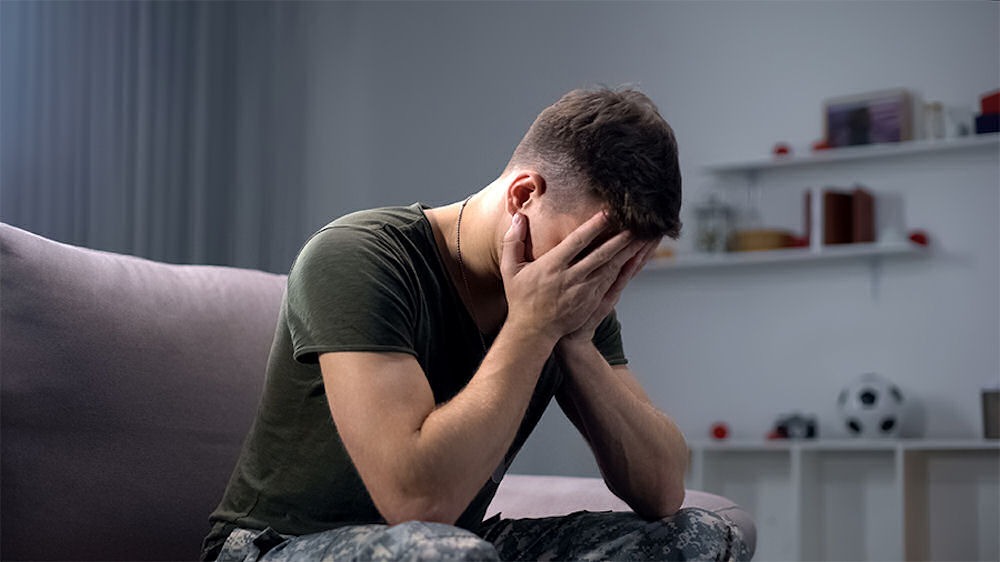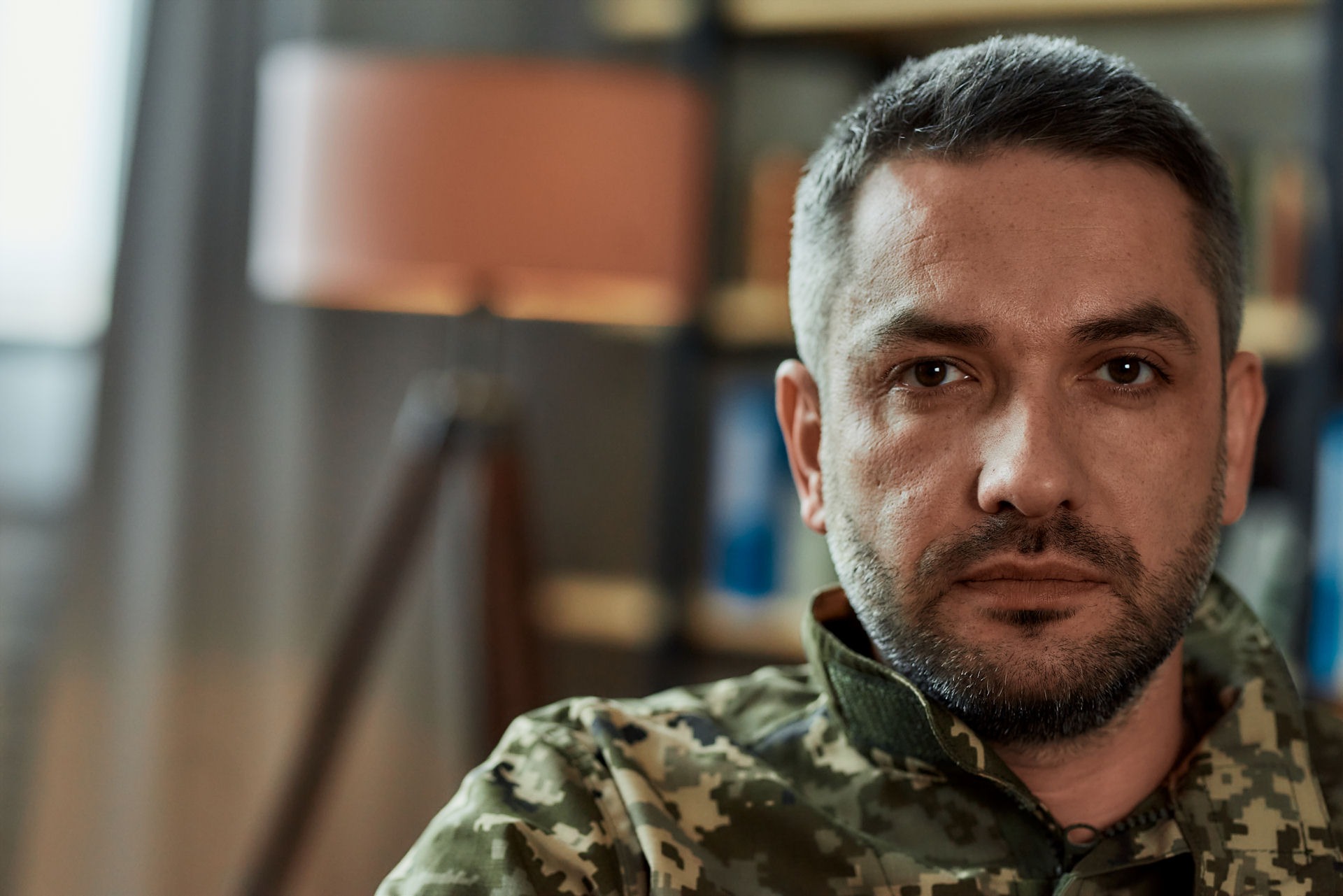Several behavioral traits are unique to PTSD symptoms in men. Understanding these gender-based expressions enables your physicians to address these conditions. Consult the insights below to better understand the nature of PTSD, its symptoms, and how to manage them through mental health management techniques.
PTSD flare-ups magnify irritability levels. This can make dealing with people or daily tasks especially frustrating and difficult. More trustingly, these increased anger levels can arise with seemingly no underlying cause. That’s why we provided PTSD-centered anger management techniques to overcome these PTSD anger flare-ups. Reach out to us now to learn more about these and other PTSD symptom management methods.
PTSD is severely taxing on your psyche, both emotionally and mentally. This frequently leads to extreme sadness, depression, and potentially suicidal thoughts or tendencies. It’s crucial to never say when this symptom arises. Seek immediate therapeutic help if you have PTSD-related depression, as it can cloud your better judgment. Our depression treatment programs help you deal with negative thought cycles and implement positive thought patterns.
One of the most common symptoms of male PTSD is sleeping problems. These sleep disturbances can be caused by several reasons, including neurobiological imbalances, night terrors, or other PTSD-related sleep problems. Each bout of PTSD-induced insomnia is different for each individual. Some individuals may have difficulty falling asleep, while others may experience persistent waking throughout the night.
Individuals who have witnessed traumatic events or instances frequently suffer from symptoms of survivor’s guilt. Survivor’s guilt is a sense of shame about surviving traumatic instances that resulted in the death of another. This symptom is especially common among PTSD stemming from military service. This symptom never abates without proper therapeutic attention that involves coming to terms with the traumatic instance and the outcome. Crestview Recovery can help you overcome your survivor’s guilt and move on confidently and proactively.
When other symptoms of PTSD manifest, lack of appetite can become an additional side effect and symptom of post-traumatic stress. These types of stress disorders are known to induce a lack of hunger, which can result in going hours or days without eating. Most times, the sufferer doesn’t realize how long they’ve gone without eating. This is a dangerous symptom as it can lead to malnutrition and other serious health consequences.
SUDs are as much a mental health condition as post-traumatic stress disorder. Worse yet, substance use disorders are a frequent symptom and side effect of many post-traumatic stress disorders. In cases where substance use disorders manifest as a symptom of underlying PTSD, dual-diagnosis treatment is the most effective program. Moreover, dual-diagnosis therapy is not only effective, but also required to recover from multiple coexisting conditions.
When it comes to PTSD, there are very specific, seemingly minor triggers that are anything but minor to the sufferer. For example, the sound of a car backfiring or fireworks can induce fear or startling anxiety. For military service workers, such sounds can even trigger flashbacks of their days of service.
What are the Common Red Flags of Male PTSD?

People mistake red flags and symptoms as the same entity when they are very different. Red flags of PTSD are how symptoms manifest through various observable indicators. Symptoms are strictly individual-specific experiences. That said, here are some of the many red flags of PTSD. Connect with our treatment team immediately if you notice any of the following red flags in a loved one.
Individuals battling mental health problems, especially in cases of PTSD, will seclude themselves from social situations. Reclusive manifestations include locking oneself in one’s room, keeping to oneself, or going out of one’s way to be alone. If you notice an individual avoiding the crowd, this can be a silent cry for help. Give them the company they need without overstepping your bounds. Something as simple as a kind gesture or word can go a long way.
Post-traumatic stress disorders exhibit themselves emotionally, especially if associated thoughts or conditions are bottled up. This leads to overly expressive rants, outbursts, or other irrepressible emotional expressions. This red flag is important to take notice of because your responses in these moments are key to their treatment. This means your responses at these times can help manage these outbursts and put the state of their condition in perspective. In addition, it may guide them to seeking the help they need if they’ve previously denied treatment.
While insomnia is a common symptom of PTSD, this sleep deprivation manifests itself through noticeable characteristics. Red eyes, bags beneath the eyes, or any other optical deficiencies are telling of PTSD-related or other mental health-induced insomnia. Other visible traits include nodding off during the day, lethargy, or a disheveled appearance. Don’t ignore this evident red flag of a deeper-rooted mental condition.
A person’s countenance says a lot about their mental health state. Whether they are over-anxious, sad, or happy, these behavioral representations attest to the state of their mental well-being. Therefore, noticing a sunken demeanor, a defeated vocal tone, or other manifestations of a sad countenance, reach out today. Your reactions to these red flags could be the lifeline they need to begin the road to mental healing.
With easy irritability comes evident mood swings. That’s due to post-traumatic stress disorder’s impact on your emotional stability. This means individuals suffering from PTSD are prone to shifting moods on a dime with little or no underlying cause. Thankfully, there are several mood-based medications, meditations, and therapeutic teachings that can help PTSD sufferers abate mood swings.
Mental health battles don’t just take a toll on the sufferer. It has a tremendous impact on those closest to the struggling party. That’s why strained friendships and relationships are a common red flag that substances are involved. These strains stem from family and friendly concern, heated disputes, and other substance-induced strains. Thankfully, our cutting-edge family therapy programs help mend these bonds while attacking the root of addiction.
What are the Best Treatment Options for PTSD Symptoms in Men

The best type of treatment varies per individual since everybody responds differently to different kinds of treatment. However, the following programs give you a generalized overview of the most effective treatment options, including inpatient trauma treatment for those who require a structured, intensive environment to address trauma alongside other needs.
Cognitive Behavioral Therapy is a revolutionary approach that delves deep into the root of your addiction struggles from a mental perspective. This treatment utilizes state-of-the-art scientific methods to untrain addictive thought patterns and triggers. This is not too good to be true. In addition to untraining these thoughts, our expert professionals instill positive thought patterns through specialized training techniques. Discover firsthand how CBT can help you develop new mental and physical habits by contacting us today.
We touched earlier on the importance of family therapy and family involvement in rehab. That’s why family therapy is one of the best treatment solutions, serving a variety of mental healing purposes. These sessions focus on healing in unison as a family, establishing a vital support foundation, while also treating the underlying mental health conditions. You’ll grow as a family, heal together, and connect with each other on a deeper emotional level in our family-centered treatment programs.
Individual therapy is arguably the most personalized treatment option available. Though all our programs are meticulously engineered to maximize personalized care, the singular therapist-to-patient attentiveness magnifies those attributes. This allows our specialists to hone in on your weaknesses with no external distractions to chart the most effective mental health management methods.
Different types of rehabs offer separate benefits. For example, group therapy provides unique social advantages for the many individuals who feel alone in their struggle. Therefore, these sessions expose mental health sufferers to other positive influences to help them manage their symptoms. This social approach also allows you to build mental health support groups by forming bonds with similarly goal-oriented individuals.
Intensive Outpatient Program offers similar full-time access to care as a Partial Hospitalization Program, but in slightly more relaxed settings and lower monitoring levels. In these sessions, we’ll teach you practical application of stress, anxiety, and mental health symptom techniques. Moreover, our therapists serve as the most effective transitional crutch to independent living. Bear in mind that qualifying for these programs is strictly dependent on medical diagnosis and treatment necessity.
12-step treatment isn’t just for addiction. They have equally beneficial impacts on mental wellness. These sessions provide a vital funnel to vent your thoughts that cause significant harm when bottled up. Furthermore, these social settings are another great way to establish your mental health support groups. Reach out to us to get more information about our transformative 12-step programs.
Crestview Recovery Offers PTSD Treatment for Men in Portland, Oregon
The severe PTSD symptoms in men require the highest quality care for mental wellness management. That’s exactly what you’ll find in Crestview Recovery’s personalized PTSD male treatment programs. We’re here to show you, through our unrivaled mental training methods, that you don’t have to struggle. You can enjoy life without the burden of your mental health by contacting us today.
































